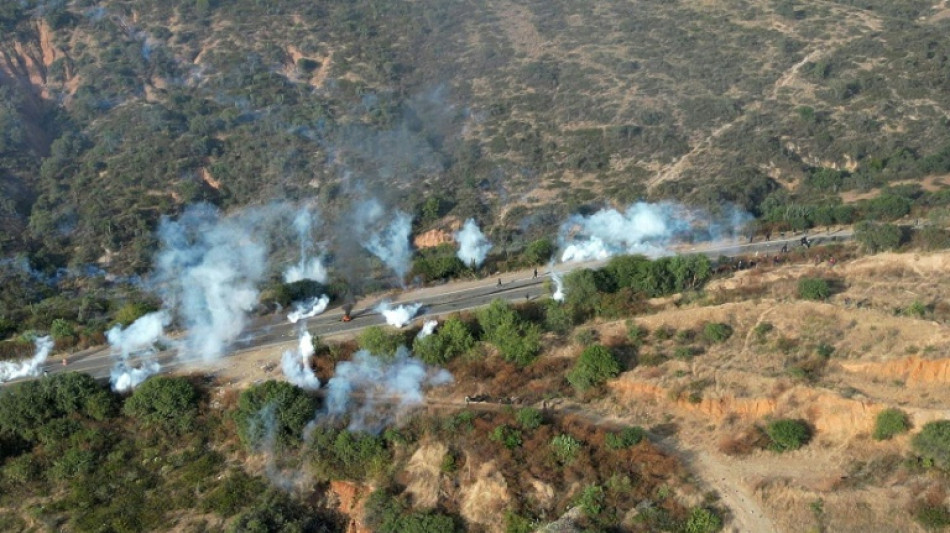

Fourth policeman killed in clashes with Morales backers in Bolivia
A Bolivian policeman taken hostage by protesters has died after an explosive detonated on him, bringing to four the toll among officers who clashed with followers of ex-president Evo Morales, officials said Thursday.
Supporters of Morales, who led the Andean country from 2006 to 2019, began blocking key roads on June 2 over electoral authorities' refusal to allow him to run for a fourth term in August 17 elections.
The protests have since snowballed into a wider revolt over President Luis Arce's handling of a deep economic crisis, marked by severe shortages of hard currency and fuel.
On Wednesday, three officers deployed to clear a roadblock in Llallagua, a mining town in the country's southwest, were shot dead in violent clashes with protesters, police said.
On Thursday, Justice Minister Cesar Siles said a fourth officer, Cristan Calle Alcon, died.
Deputy Interior Minister Jhonny Aguilera said Alcon had been "taken hostage by a horde" and was killed by "the use of dynamite" on his person -- apparently a device taped to his chest.
Aguilera announced the military will be sent to Llallagua to "guarantee a state of calm and of peace." Several dozen people have been reported injured in clashes in the town since Tuesday.
Other officers were also hurt Wednesday trying to clear roadblocks elsewhere in the country, including on the road connecting La Paz with Cochabamba, Morales' political stronghold.
Bolivia's roads authority said there were 19 roadblocks left countrywide on Thursday.
Morales, 65, has been barred by the Constitutional Court from seeking re-election but nevertheless attempted, in vain, to register as a candidate last month.
The government accuses him of trying to sabotage the election by calling for blockades to sow chaos.
The protesters' goal "is to encircle La Paz to force it into submission through hunger," President Arce said Wednesday as he announced a joint police and military operation against the blockades.
On Monday, the attorney general said Morales was under investigation for "terrorism" for allegedly inciting the protests.
Bolivia's first Indigenous president has been holed up in his central stronghold in the Cochabamba department since October to avoid arrest on charges of trafficking a minor.
The charges relate to Morales's alleged sexual relationship with a 15-year-old with whom he is accused of fathering a child while in office. He denies the charges.
Morales retains a large following in the South American country, particularly among Indigenous communities.
B.Schmidt--NRZ




